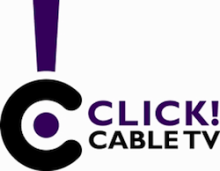Gainesville, Florida, Releases Invitation To Negotiate; Responses Due April 23rd
About a year ago, the folks in Gainesville, Florida, decided to commission a feasibility study to explore the pros and cons of various municipal network models. Residents had had enough with the high rates from incumbent Cox Communications. City leaders and leadership at Gainesville Regional Utilities (GRUCom) recently released an invitation for qualified businesses to negotiate (ITN) an agreement for services in their search for fast, affordable, reliable broadband throughout the community. Responses are due April 23rd.
They Got GATORNET
Apartments and businesses in areas near the University of Florida have access to GATORNET, a fiber network that was established in the 90's. GRUCom had deployed fiber throughout Gainesville and had been offering services to government facilities and some businesses prior to the Gig.U project. In addition to some 600 miles of fiber and a data center in Alachua County, GRUCom provides wireless services.
With all these assets, local community members who were paying high rates for Internet access from incumbent Cox felt that the community should be considering using the fiber to provide competition — and encouraging better rates. Last year the grassroots group, Connected Gainesville, made a potential municipal fiber network an important election issue by pressing candidates for their positions on publicly owned Internet infrastructure investment.
From the press release:
“Through the robust fiber-optic network currently in place, the addition of increased internet speeds and lower costs, will keep Gainesville in a unique position to reduce disparities in our community when it comes to being connected,” said City Commissioner Adrian Hayes-Santos, Chair of the Broadband Connectivity Subcommittee. “The process will also allow us to explore new ways to further develop plans for smart city applications, infrastructure and communications systems in collaboration with private firms.”
Interested firms are encouraged to contact Clint Lockhart, Senior Buyer at LockhartCM(at)GRU.com or (352) 393-1250.
Responses are due April 23rd, 2018.



